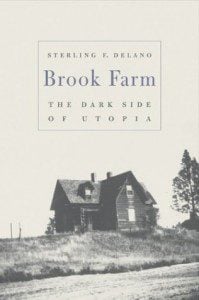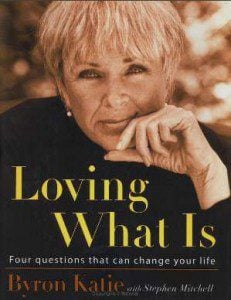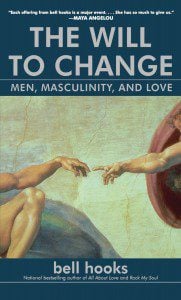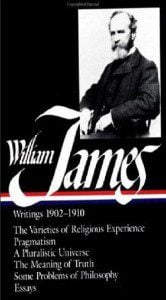When I was 12, the most salient books on my parents’ shelves were two red-bound volumes, The Case of Leon Trotsky and Not Guilty. These made up the report of the Dewey Commission of Inquiry into the Moscow Trials. I never read them with the wide-eyed fascination I brought to books like Krafft-Ebing’s Psychopathia Sexualis, but I thought of them in the way in which other children thought of their family’s Bible: they were books that radiated redemptive truth and moral splendor. If I were a really good boy, I would say to myself, I should have read not only the Dewey Commission reports, but also Trotsky’s History of the Russian Revolution, a book I started many times but never managed to finish. For in the 1940s, the Russian Revolution and its betrayal by Stalin were, for me, what the Incarnation and its betrayal by the Catholics had been to precocious little Lutherans 400 years before….
I grew up knowing that all decent people were, if not Trotskyites, at least socialists…. Working as an unpaid office boy during my twelfth winter, I carried drafts of press releases from the Workers’ Defense League office…. On the subway, I would read the documents I was carrying. They told me a lot about what factory owners did to union organizers, plantation owners to sharecroppers, and the white locomotive engineers’ union to the colored firemen (whose jobs white men wanted, now that diesel engines were replacing coal-fired steam engines). So, at 12, I knew that the point of being human was to spend one’s life fighting social injustice.
—Richard Rorty, “Trotsky and The Wild Orchids”
Sigmund Freud once said that, “Copernicus, Darwin, and he himself had been responsible for successive cataclysmic decenterings — of the planet earth, of the human species, and of the conscious mind respectively.” In addition to these three historic decenterings, we could add Albert Einstein’s theory of relativity, which decentered our sense of space and time into the conflated relativity of space-time. The cumulative implication of these paradigm shifts is that before the Scientific Revolution, it wasmuch more justifiable to understand our planet as the center of the universe, our species as the center of creation and our sense of our “self,” as well as our perspective of space and time, as the only legitimate view. But the postmodern world challenges us to question the dominance of each of these former center points.
Each of these decenterings has been formative in my own journey to Unitarian Universalism, which began in the Southern Baptist fold and passed through liberal Baptist life. My primary childhood religious context was a large Southern Baptist congregation in the midlands of South Carolina. When I was younger and my worldview was formed almost exclusively from this perspective, I would have been happy if all six billion people on Earth were Southern Baptists. But as I grew older I began to meet increasing numbers of non-Southern Baptists who were kind, well-adjusted, smart, funny, competent human beings. My church was the center of my world, and taught me to believe that the most important decision anyone could make was whether to accept Jesus as “your personal Lord and Savior.” But I became increasingly unsure of how to reconcile this exclusivist belief with the many remarkable people I was meeting in the world who understood Jesus differently than I had been taught.
My church taught me that Jesus, as defined by the Southern Baptist Convention, was the one, true center. Yet I increasingly met people whose worlds centered on the Methodist church or the Catholic church as well as others whose worlds did not revolve around any religion. Their lives centered on their career, family, or favorite sports team. If I had been born a few decades earlier, I could perhaps have more easily maintained my Southern Baptist beliefs with less struggle because I might have met fewer people who were not Southern Baptists. But when your roommate is a Roman Catholic, your best friend is an atheist, and your favorite professor is a Buddhist, it is increasingly difficult to maintain with integrity the position that the Southern Baptist faith — or any other single religion — is the one, true center. My encounters with a diverse and pluralistic humanity was decentering Jesus in the same way that Copernicus decentered the planet earth, Darwin decentered the human species, and Freud decentered the conscious mind.
Since the decentered, pluralistic perspective that I have been describing has been my worldview essentially since my sophomore year in college, you may be wondering what took me so long to become a Unitarian Universalist. At least three reasons come to mind. First, the deeper I delved into the two thousand year history of Christianity, the more I came to discover the many neglected resources in the Christian tradition that can be vital contributions for healthy spirituality and transformative ethics, which is part of why the “Jewish and Christian teachings” remain one of the Six Sources of Unitarian Universalism. Second, retrieving the best of the Christian tradition has allowed me to help many people move from a more fundamentalist faith to a more open-minded, generous, and compassionate practice. Third, there are many de facto Unitarian Universalists in progressive Christian circles, and hanging out with those folks kept me amongst liberal Christians longer than I may have otherwise stayed.
Before choosing to seek fellowship with the Unitarian Universalist Association, I was an officer on the national board of the Alliance of Baptists. To quote from the homepage of the Alliance’s website: “We began as a dissenting voice in Baptist life more than 25 years ago. For more than 20 years we have affirmed the call and ordination of women in ministry and the full acceptance and embrace of the LGBT community…. The Alliance is committed to ecumenism, partnership in mission, radical hospitality, and social justice.” (Not too shabby for Baptists, right?)
Yes, it is true that Jerry Falwell, Mike Huckabee, Roy Moore, Tim LaHaye, and Fred Phelps are Baptists, but Martin Luther King, Jr. was also Baptist — so too are Bill Clinton, Al Gore, Jimmy Carter, Jesse Jackson, and Bill Moyers. However, despite my gratitude for many aspects of my Baptist heritage, I am even more grateful for the opportunity to choose Unitarian Universalism as a liberal religion that embraces the fullness of twenty-first century knowledge and experience. I am grateful for the opportunity to choose to join a religious tradition, whose forebears include John Adams and Susan B. Anthony, Clara Barton and William Ellery Channing, Ralph Waldo Emerson and Margaret Fuller, Thomas Jefferson and Frank Lloyd Wright, Forrest Church and Rebecca Ann Parker, William Sinkford and Peter Morales.
I am similarly grateful for the opportunity to choose to be a part of a congregation in which myself and my wife Magin can both feel fully a part. Magin was raised to practice Reform Judaism, but has become a practicing Buddhist in recent years.
Part of how I understand my charge as a UU minister is to help hold the space in which we can collectively draw from all Six Sources of Unitarian Universalism:
- Direct experience of that transcending mystery and wonder, affirmed in all cultures, which moves us to a renewal of the spirit and an openness to the forces which create and uphold life;
- Words and deeds of prophetic women and men which challenge us to confront powers and structures of evil with justice, compassion, and the transforming power of love;
- Wisdom from the world’s religions which inspires us in our ethical and spiritual life;
- Jewish and Christian teachings which call us to respond to God’s love by loving our neighbors as ourselves;
- Humanist teachings which counsel us to heed the guidance of reason and the results of science, and warn us against idolatries of the mind and spirit;
- Spiritual teachings of Earth-centered traditions which celebrate the sacred circle of life and instruct us to live in harmony with the rhythms of nature.
By no means, however, does this position require that any particular individual find all Six Sources equally meaningful.
To give you a glimpse into my longstanding interest in all manner of religious and humanist traditions, I would like to share with you a few results of an admittedly unscientific test I took back in 2007 on Beliefnet.com called Belief-O-Matic. The quiz is described as: “Even if you don’t know what faith you are, Belief-O-Matic™ knows. Answer 20 questions about your concept of God, the afterlife, human nature, and more, and Belief-O-Matic™ will tell you what religion (if any) you practice…or ought to consider practicing.” It then issues the following whimsical caveat, “Warning: Belief-O-Matic™ assumes no legal liability for the ultimate fate of your soul.”
Back in 2007, my top four recommended religious affiliations, according to the Belief-O-Matic, were:
- Neo-Pagan (100%)
- Unitarian Universalism (99%)
- Liberal Quakers (97%)
- Secular Humanism (85%).
For those of you familiar with the work of William Murry in books such as Reason and Reverence, I suspect my percentage match with humanism would be significantly higher than 85% if the questions were adjusted from generic Secular Humanism to Murry’s more nuanced definition of Religious Humanism. Also noteworthy is that my match for “Mainline to Liberal Christian Protestants” was only 74%. So, at least according to the Belief-O-Matic, I get an “A+ in Neo-Paganism, UUism, and Liberal Quakerism, a solid “B” in Secular Humanism, but only a “C” in Mainline Christianity. I’m glad to be a UU Minister because I always like to get an “A”!
Incidentally, Magin gave me permission to share that back in 2007, she received a 100% match with Unitarian Universalism, 99% with Neo-Paganism, and 98% with Buddhism. Ultimately, however, neither Unitarian Universalism nor the Unitarian Universalist Congregation of Frederick is about me or Magin alone. It’s not about any of us individually, in isolation. Unitarian Universalism, at its best, is about all of us together. It’s about the entirety of his one planet on which we find ourselves. It’s even about the whole cosmos. As the Seven Principles state, Unitarian Universalism is about:
- The inherent worth and dignity of every person;
- Justice, equity and compassion in human relations;
- Acceptance of one another and encouragement to spiritual growth in our congregations;
- A free and responsible search for truth and meaning;
- The right of conscience and the use of the democratic process within our congregations and in society at large;
- The goal of world community with peace, liberty, and justice for all;
- Respect for the interdependent web of all existence of which we are a part.
Along these lines, one of the best statements I heard at the recent Unitarian Universalist General Assembly in Phoenix was from the current UUA President Peter Morales, who said, “I want someone to design a UU t-shirt that says, ‘UU: It’s not about you.’” As the old joke says, “Only you can cure narcissism.” And one of the best cures for narcissism is learning to survive and thrive in the midst of the diversity that characterizes most, if not all, Unitarian Universalist congregations. We are on the frontline experimenting with and modeling what a world community could and should look like, although we have a long way to go on this journey.
In the words of UUA President Peter Morales,
We have known for many years that the number of people who identify as Unitarian Universalists (UUs) is about four times the membership of our congregations (about 160,000 adult members and about 650,000 people who identify as UUs). In other words, for every adult member there are three non-members who say they are Unitarian Universalist.
Those statistics identify some low-hanging fruit that makes the vision see possible of Unitarian Universalism going viral.
I believe in the Principles and Sources of Unitarian Universalism. I’m proud to be an advocate for liberal religion as a vision for how we can build a future based on compassion, justice, and peace for the whole of this planet. I am honored to accept the challenge of helping both Unitarian Universalism and the Unitarian Universalist Congregation of Frederick “Go Viral.” I look forward to partnering with you in making this vision a reality. Together we can turn dreams into deeds.
Notes
1 “Pluralism, Pragmatism, Progressivism” — I owe the title of this sermon to the American pragmatist philosopher Richard Rorty (1931-2007). In a field notorious for dense prose and technical jargon, Rorty’s lucid writing style is a breath of fresh fair. Across many popularly accessible books, he was able to write clear, direct, even beautiful sentences without sacrificing analytic rigor. I have a few significant points of departure from Rorty’s philosophy, but I also owe him a significant intellectual debt. Specifically, the title of this sermon is adapted from his book Philosophy and Social Hope in which the subtitle of the Afterword is “Pragmatism, Pluralism and Postmodernism.”
If you are looking for a good entry point into Rorty’s work, try Achieving Our Country : Leftist Thought in Twentieth-Century America or Philosophy and Social Hope.
Free web resources about Rorty include the entry about him in the online Stanford Encyclopedia of Philosophy (http://plato.stanford.edu/entries/rorty/) and his obituary in The New York Times (https://www.nytimes.com/2007/06/11/obituaries/11rorty.html).
Specifically on religion, see either of two books in which Rorty was a main contributor: An Ethics for Today: Finding Common Ground Between Philosophy and Religion or The Future of Religion.
My favorite critique of where Rorty overreaches is NYU philosopher Paul Boghossian’s book Fear of Knowledge: Against Relativism and Constructivism.
2 “Trotsky and The Wild Orchids” — The except from Rorty’s autobiographical essay can be found in his book Philosophy and Social Hope (5-6) as well as in The Rorty Reader. You can also read this essay free online at http://cdclv.unlv.edu/pragmatism/rorty_orchids.html.
3 “successive cataclysmic decenterings” — Freud, quoted in Rorty, Philosophy and Social Hope, 263.
The first major decentering was the publication of astronomer Nicolai Copernicus’ 1543 book On the Revolutions of the Celestial Spheres, which argued, based on observable, verifiable evidence, that we live in a heliocentric, not geocentric, universe. This insight decentered the Earth, overturningthe incorrect assumption that our planet is the center of the universe. We know today that there are more than 100 billion galaxies in the universe, and each of those 100 billion galaxies includes billions of stars (For more, see Carl Sagan, Billions & Billions: Thoughts on Life and Death at the Brink of the Millennium,56). Earth is only a small planet, orbiting one medium-sized star toward the edge of one spiral galaxy that, again, is only one among more than 100 billion other galaxies in the universe. As with the other decenterings, one challenge is to learn speak not of “The One,” but of “one among many.”
A second major decentering was the publication of English naturalist Charles Darwin’s 1859 book, On the Origin of the Species by Means of Natural Selection, which decentered the human species. Darwin’s meticulous observations of the natural world helped demonstrate that human beings did not originate from a special, one-time act of divine intervention. Instead, humans evolved through the process of natural selection just like every other species. Thus, humanity is not the central pinnacle of creation. Although our capacity for reason and higher-order thinking may make our species unique and significant, we are, at the same time, in an important sense, just another species, one among many.
Third, at the turn of the twentieth century, Austrian psychiatrist Sigmund Freud demonstrated the influence of our unconscious. With the advent of modern psychology, not to mention the contemporary insights of neuroscience, we have increasingly come to appreciate the extent to which unconscious drives motivate us, outside of any conscious thought or rational decision-making process. This discovery decentered our self, what Freud called, in German, the “Ich,” which is translated as the “ego” or, better, simply as the first-person pronoun “I.” The word “ego” derives from the Latin word for “I.” Translating the German, first-person pronoun Ich into English as “ego” instead of “I” can needless complicate Freud’s point that of our sense of our self as a cohesive, conscious “I” was decentered by his emphasis on the influence the unconscious.
4 “Decentering Jesus” — for more, I recommend the work of Paul Knitter such as his recent autobiographical book Without Buddha I Could Not Be A Christian or a volume he edited The Myth of Religious Superiority: Multi-Faith Explorations of Religious Pluralism.
5 For more on the Six Sources of Unitarian Universalism, visit http://www.uua.org/beliefs/principles.
6 For more on the Alliance of Baptists, visit http://www.allianceofbaptists.org.
7 For more on historic Unitarian Universalists forebears, seeA Who’s Who of UUs : A Concise Biographical Compendium of Prominent and Famous Universalists and Unitarians, edited by Gwen Foss.
8 To take the free Belief-O-Matic quiz, visit http://www.beliefnet.com/Entertainment/Quizzes/BeliefOMatic.aspx.
9 For more on the Seven Principles of Unitarian Universalism, visit http://www.uua.org/beliefs/principles.
10 For the full article on Peter Morales’ 2012 Unitarian Universalist General Assembly address, visit http://blogs.uuworld.org/ga/2012/06/24/in-2017-unitarian-universalism-has-gone-viral/.
11 “number of people who identify as Unitarian Universalists (UUs) is about four times the membership of our congregations” — for the full article, see http://www.uua.org/uuagovernance/officers/president/moralespeter/192145.shtml.
The Rev. Dr. J. Carl Gregg is a trained spiritual director, a D.Min. graduate of San Francisco Theological Seminary, and the minister of the Unitarian Universalist Congregation of Frederick, Maryland. Follow him on Facebook (facebook.com/carlgregg) and Twitter (@carlgregg).
Learn more about Unitarian Universalism:
http://www.uua.org/beliefs/principles/index.shtml












